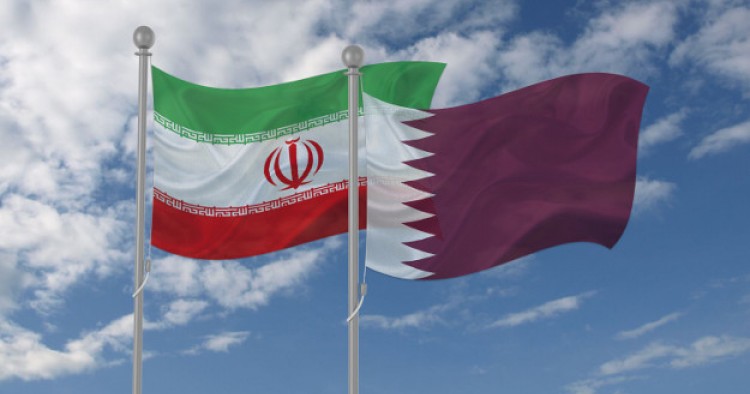Iran opposes “unjust” sanctions against Qatar and is ready to expand its relations with the Arab country in all fields, President Hassan Rouhani said in a phone conversation with Qatari Emir Sheikh Tamim bin Hamad al-Thani on Thursday. “The Islamic Republic of Iran believes what was imposed on Qatar was unfair and that it fuels tension between regional countries. Iran will do all in its power to cooperate with and assist the Qatari people and government as well as to [promote] regional stability,” Rouhani added.
According to the readout of the conversation published in the Iranian media, the Qatari leader echoed a similar sentiment. “Qatar wants to deepen and strengthen its relations with the Islamic Republic of Iran in all fields, and believes that the expansion our relations benefit the people of the two countries and those of the region.” Thani also reiterated that the Qatari government and people will never forget Iran’s help at the time of need and “are grateful to Iran for opposing these sanctions and opening its air, sea and land routes to our country.” He continued: “The outlook of the expansion of Doha-Tehran cooperation is promising in all political, economic and cultural fields. Qatar is ready to take advantage of this historic opportunity to expand its relations with the Islamic Republic of Iran in all areas.”
Comment: On June 5, Saudi Arabia followed by several other Arab nations severed diplomatic and commercial ties with Qatar to protest Doha’s alleged support for terrorism and close relations with Iran. Officially, the Iranian government responded by calling on all parties to show restraint and resolve the dispute diplomatically. “Neighbors are permanent; geography can’t be changed. Coercion is never the solution. Dialogue is imperative, especially during blessed Ramadan,” Iran’s Foreign Minister Javad Zarif tweeted hours after the crisis began. But the Gulf dispute has triggered a debate inside Iran about pros and cons of Iran’s siding with Doha.
After President Donald Trump’s visit to Riyadh in May, Iranian leaders were worried about the creation of a U.S.-supported alliance of regional Arab states led by Saudi Arabia to counter the Islamic Republic’s influence in the Middle East. The latest dispute between Qatar and a Saudi-led bloc of Arab countries, therefore, provided some relief to Tehran. But while Tehran is trying to capitalize on the Qatari crisis for its geopolitical ends, it is proceeding with caution. As statements by Iranian officials and commentary in the Iranian media suggest, many in Iran distrust Qatar as well as Doha’s powerful regional ally Turkey. There are also concerns in Tehran that Iran’s all-out support to Qatar may provoke a strong response from Washington and Riyadh.
There is, however, a general consensus in Iran that the country should take advantage of the Gulf crisis to boost Iranian exports to Qatar. Soon after the crisis began, Tehran, according to Iranian officials, sent hundreds of tons of fruits and vegetables to Qatar to mitigate the country’s food shortage. It also opened its airspace for Qatari flights that no longer has the permission to fly over Saudi Arabia, United Arab Emirates and Bahrain. But I.R.G.C.-affiliated outlets have criticized the Rouhani government for acting sluggishly and losing the competition to Turkey in becoming the main exporter of food to Qatar. An article in Fars News Agency argued that Iran is strategically better placed to export food and non-food items to Qatar by air and sea.
The Middle East Institute (MEI) is an independent, non-partisan, non-for-profit, educational organization. It does not engage in advocacy and its scholars’ opinions are their own. MEI welcomes financial donations, but retains sole editorial control over its work and its publications reflect only the authors’ views. For a listing of MEI donors, please click here.













